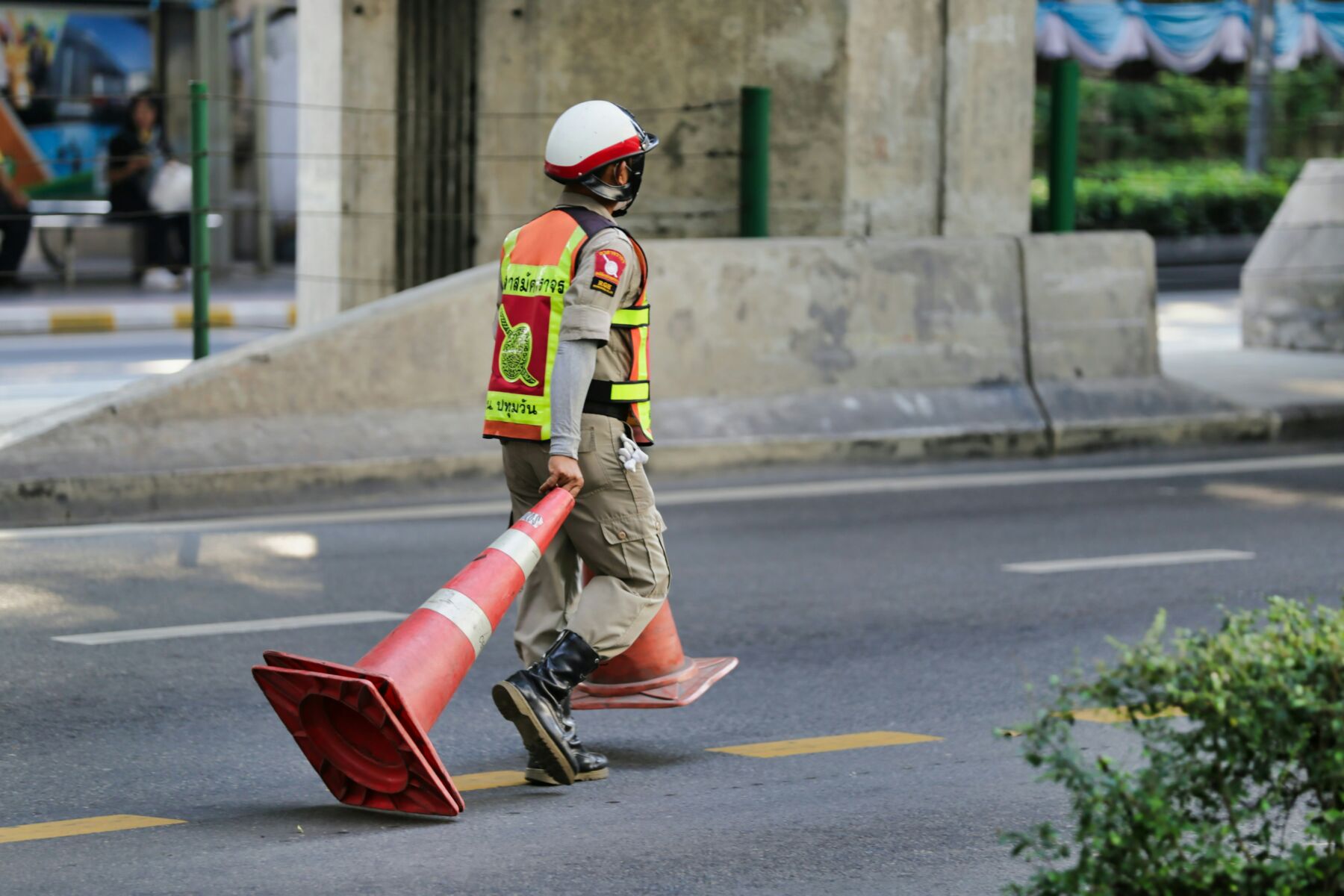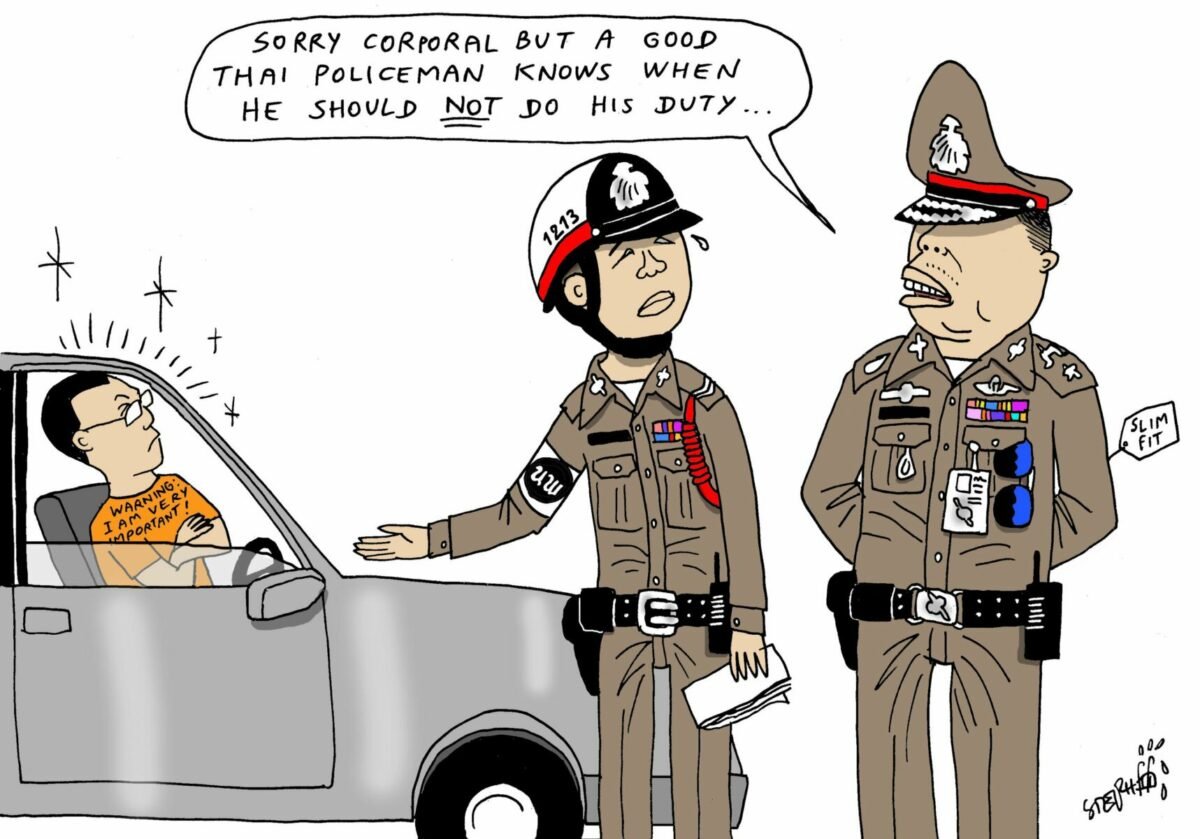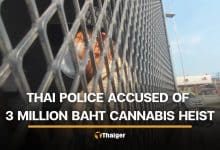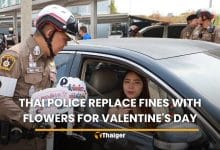How to deal with traffic stops and Thai cops

In a big busy city like Bangkok, Policing is an institution that enforces the law and keeps order in the city. Bangkok’s finest are awesome to see in the streets when you can catch a sighting of them now and then but nobody likes to be on the receiving end of a traffic stop by a Thai cop. Especially if you are a foreigner, you will be susceptible to being profiled more and possibly taken advantage of so it is necessary to understand how to deal with this situation.
Disclaimer
A big disclaimer I want to put before I continue is that I do not despise the police in any way. Do not take each criticism as an attack on the character of the police but as a matter of fact alongside some tips to help.
Feel free to contribute to the conversation and remember that a lot of situations can be dependent. In general, Thai cops will be friendly and probably some of the best people we can meet in Thailand but we will always run into the overzealous or greedy bad apples or even fake cops while living in Thailand.
Also, do not use this as an excuse to break laws and push the boundaries. When you are in Thailand, respect goes a long way for any facet of life in the Kingdom.
Steps to deal with traffic stops and Thai cops

Step 1: The rule breaker
While you are driving around in Thailand, such as the traffic-laden and chaotic streets of Bangkok full of cars and motorcycles, you will find that all sorts of traffic rules are broken all of the time. Citizens in Thailand treat the laws more like suggestions with a driving style that is wild and infuriating but at the same time endearing (due to the sabai sabai nature of the Thais).
With the insanity that goes on in the streets, you might find yourself tempted to follow along as well and maybe pass over a line or take an illegal turn. That’s where we have the issue.
Do your best to follow the road rules and police instructions
You may see Thais break road rules (I.e. driving on the curb, illegal turns, etc.) all of the time but the big issue here is that you are not Thai.
This is not to say that Thais do not get stopped as well but farang* make easier targets for these stops. Keep in mind that most of the time, you will get away with it as it is too much trouble to deal with but a more zealous (or more often dishonest) cop, will pick you out of the sea of cars.
When the officer flags you down to stop, the best course of action to take in this case will be to follow along with these instructions and stop at the designated spot.
There is no point in running, it is a bigger trouble and unnecessary charge to stick on you and the traffic of major cities like Bangkok will cut your high-speed pursuit short.
*Farang is the Thai term for foreigner.

Step 2: The traffic stop
At this point, you find yourself at the side of the road, hands on the wheel, frustrated and probably nervous beyond all reasonable doubt. At this point, you will need to follow this important step.
Stay calm!
It is natural to be nervous in a situation like this but one thing you must know is that you do not know why you are being stopped yet. While being nervous is good to keep yourself in check, you must remember that being overly nervous can cause you to act in a way that puts you at a disadvantage.
Be Respectful
Despite how you might feel about the stop, it helps that you always show a certain level of respect towards the officer who stopped you. Being friendly to an extent without being overly friendly can help as well since mutual respect can reduce the severity of the infraction if the Thai cop is reasonable.
If you show yourself to be very abrasive, the officer will feel the need to be more punitive and probably go harder on you.
Hand your ID or papers when asked
Never forget your driver’s license if you can. It is one thing to be stopped for a road infraction but to be caught without licensing can be worse. Being caught without a license can lead to 1-month of imprisonment, a 1,000 baht fine, or both according to the 2522 (1979) and the Land Transport Act, B.E. 2522 (1979).
My suggestion when it comes to dealing with anything about the police is to answer and give anything only when they are asking and demanding it and nothing more.
The reason I suggest that is because one thing I have learnt is that when you say more than needed, it is possible to incriminate yourself or give too much and encourage them to act on a new process, probably taking more time.
Risky alternative: Do your best not to give your ID or papers
During the stop when the cop will ask for your driver’s license, passport, ID, or any Thai-related documents and although you might feel inclined to give something, the best course of action is not to give. You can try to feign ignorance, claim that you forgot, or straight up let them know that you will not give them your ID or papers.
Although seemingly strange, it makes sense when you understand that more corrupt police officers might keep your documents, ID, or passport hostage. With this, you will be unable to move from location and a more corrupt Thai cop would possibly try to extort you of more money.
Keep in mind that the severity of the offence can determine whether you should or should not give your ID or documents but for something like a minor road infraction, you do not need to give it.
Furthermore, unless you can understand it, try not to sign any documents they might give as well. You do not want to become a slave to the contract and sign away something that might bend you over.

Step 3: The bribe
You are stopped by the Thai cop, he has told you the reason for the traffic stop, and now he is continuing to explain the situation. The ugly truth is that despite not explicitly saying it, he is expecting an alternative solution to the traffic stop. This solution is the bribe.
There are two quotas in Thailand, fines and bribes and it is a well-known fact that the police in Thailand often ask for bribes in these traffic stops. Due to a combination of what the officer would believe to be a low salary combined with institutional corruption (a cut of the pay goes around their department), the officers usually take tea money to make a living or gain more money.
Be discreet
The Thai cop is beating around the bush during the traffic stop but most of the time he expects you to make the first offer. Sometimes speaking in a foreign language and pretending to not understand English can work to a certain extent since they will let you go on the account that it is too much effort.
However, when you get to the point where a bribe is inevitable, be discreet.
The officer might direct you to a different part of the road or may instruct you to follow him into the Police booth by the road. The situation can be dependent but essentially it boils down to two ways, a way for the officer to clearly instruct you on the rules, a hidden place to hand the bribe, or both.
Usually, the bribes will be 300, 400, 500, or 1,000 baht bribes so have those prepared but do your best not to flaunt 1,000 baht bills around because the opportunistic ones will catch on and then demand more.
If you feel that the bribe is too much, you may go ahead to take the fine and pay it off at the police station.

Step 4: The exit
After paying the bribe and hopefully getting your ID and papers back if you handed them off, you will need to make a quick exit without making a big scene.
Now making a quick exit does not mean to speed off fast but you do not want to stick around too long. Since you were probably going somewhere or late for something, this will likely be your first thought and action already.
Note the offence and the area down
After getting away from the cop, you will need to immediately be on your best behaviour and follow the rule that he pulled you over for. Whether correct or not, you do not want to be stopped a second time so follow the rules as tightly as you can.
This will not happen for that day only but can also extend to other times when you will pass by the road again so make sure that once you are in the area again, that you avoid making the same infraction. If you have been caught in that infraction, it’s best not to repeat it otherwise you will find yourself a few hundred baht short once more.

Summary of the steps
Step 1: The Rule Breaker
-
- Traffic rules in Thailand are often loosely followed, but foreigners are more likely to be stopped.
- It’s important to follow road rules and police instructions even if locals don’t.
- If flagged down by a police officer, stop at the designated spot and avoid running.
Step 2: The Traffic Stop
-
- Stay calm during the stop and avoid acting overly nervous.
- Be respectful to the officer to help ease the situation.
- Always carry your driver’s license to avoid further penalties.
- In some cases, try not to give your ID or documents, especially for minor infractions, as corrupt officers may hold them hostage for bribes.
- Avoid signing any documents you don’t understand.
Step 3: The Bribe
-
- Police may expect a bribe (tea money) during traffic stops.
- Be discreet when offering a bribe, as it is often unspoken but expected.
- The officer may take you to a hidden spot to hand over the bribe, which typically ranges from 300 to 1,000 baht.
- Avoid showing large amounts of cash to prevent higher demands.
Step 4: The Exit
-
- After paying the bribe and retrieving your documents, leave the scene calmly without attracting attention.
- Take note of the area and infraction to avoid repeating the same mistake and getting stopped again.
Why does it happen and who can help
Bribery is strife in Thailand due to a combination of low salaries, institutional corruption, and lack of oversight. Furthermore, bureaucracy is a major factor that pushes the officers to accept bribes as having to give out fines and follow up with the court will take too much time and it’s not worth the effort in the views of a lot of Thai cops.
As nasty as it seems, paying the bribes essentially is a less financially and time-consuming way to deal with the infraction as you just pay for that moment and don’t need to worry about the follow-up. However, keep in mind that we can feel wronged by it.

Emergency contacts
Red text are emergency contacts that you will very likely deal with in these exchanges.
Latest Thailand News
Follow The Thaiger on Google News:


























